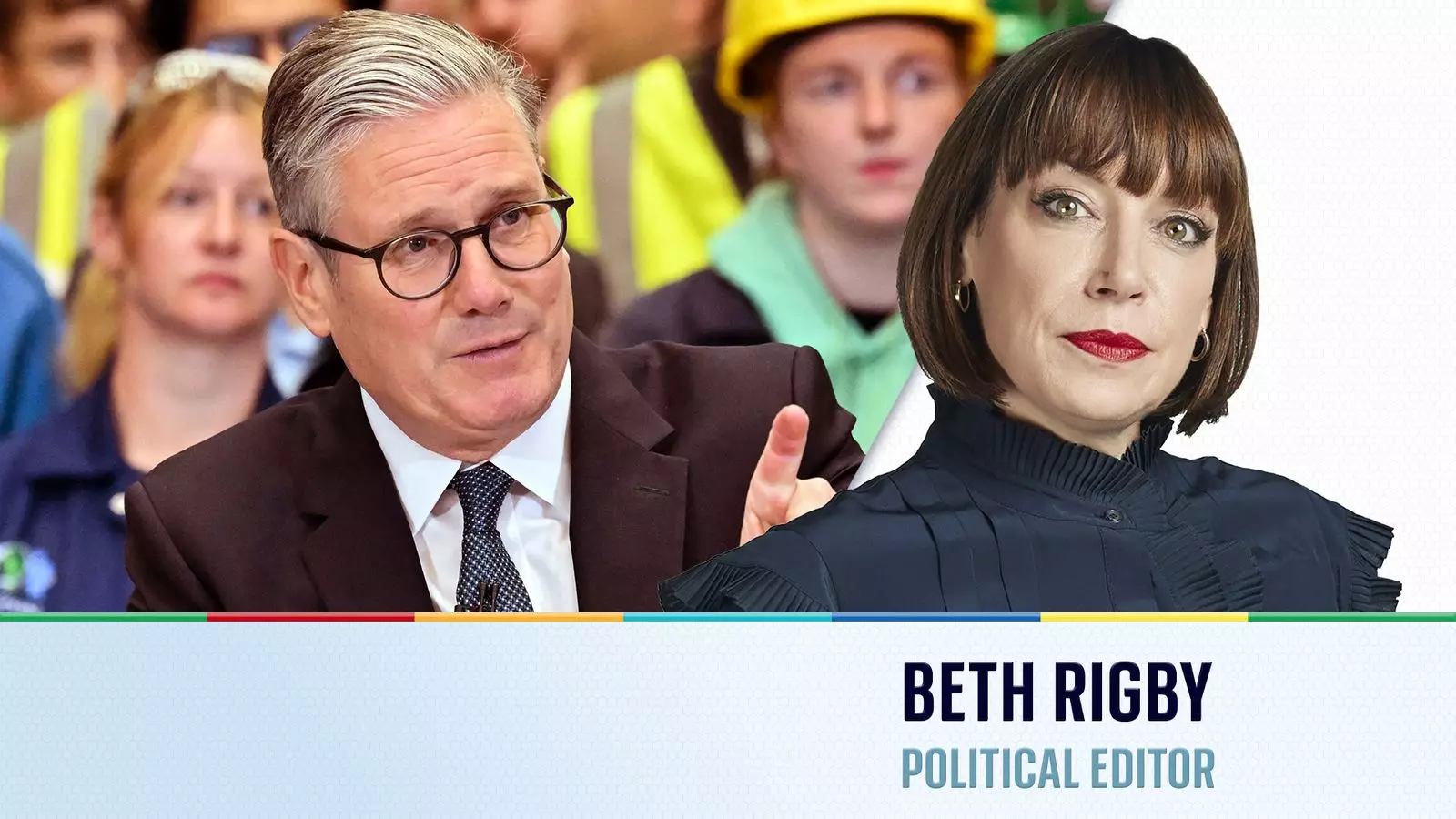Clement Attlee, the revered Labour Prime Minister, is quintessentially associated with the creation of the welfare state in post-World War II Britain. His visionary policies laid the groundwork for a society that collectively prioritizes health, education, and economic security. Attlee generally represented a bastion of social hope; he believed that every citizen deserved care and protection from the state. Fast forward to today, and one cannot help but feel a dissonance as Sir Keir Starmer, in stark contrast, positions himself as a leader intent on transforming the UK into a warfare-ready state. This shift suggests a gripping irony: the political landscape has pivoted dramatically toward defense readiness while the fundamental social concerns remain at risk of being treated as secondary issues.
The War Rhetoric and its Implications
At the recent launch of his government’s Strategic Defence Review, Starmer’s rhetoric emphasized an impending wartime mentality. Statements about moving the UK’s armed forces to a “war-fighting readiness” reflect a belief that the nation is facing its gravest security threats since the Cold War. While it is vital to acknowledge the complexity of international relations, such alarmist rhetoric fuels an anxiety that can often distract from equally pressing domestic issues, like healthcare and social welfare. The prime minister’s remarks sounded not only like a call to arms but also a desperate plea for a unifying narrative; a narrative that rallies citizens not around shared prosperity but rather through shared fears.
The Paradox of Funding Defense and Welfare
Starmer’s promise to align defense spending to 3% of GDP presents a serious conundrum. On one side, he insists on the necessity to protect citizens from threatening geopolitical realities. On the other, he hesitates to disclose a clear plan for achieving this ambitious spending target, citing “economic and fiscal conditions” as constraints. This ambivalence echoes a broader dilemma within progressive politics; how do we sustain social welfare while simultaneously emphasizing militarization? It feels increasingly like a balancing act between urgent funding requirements for warfare readiness and the continuing obligations to improve welfare programs.
The Dangers of “Sticking Plaster Politics”
Starmer’s approach risks replicating the very “sticking plaster politics” he vowed to replace. His decisions to reconsider cuts to pensioners’ winter fuel allowances and to revisit the two-child cap on benefits illustrate a retreat from decisive governance. Instead of tackling these issues head-on, Starmer appears to be searching for patchwork solutions that may momentarily appease public dissent. By sidestepping vital decisions, he risks alienating core supporters who value social safety nets as much as they desire national security. This hesitance undermines both the credibility of his promise to reform defense spending and the integrity of his vision for a cohesive welfare state.
The Tough Choices Ahead
As political analysts and citizens alike ponder the direction of Starmer’s leadership, a salient question remains: What trade-offs is he prepared to make? The responsibilities of the Prime Minister cannot afford to be diluted by platitudes. If Starmer intends to prioritize a fortified defense policy, he must also show a commitment to maintaining, if not enhancing, social welfare programs. This could necessitate difficult decisions that may lead to cuts in other areas—a political gamble that could prove highly contentious within his party and among the electorate.
Moreover, as Starmer navigates this complex landscape, he must genuinely confront the question of priorities. The UK cannot thrive solely on military preparedness, nor can it ignore its social obligations. A society is measured not only by its capacity for defense but by its dedication to uplifting every citizen, ensuring that social justice and equity remain at the forefront. If Sir Keir Starmer seeks to be remembered as more than just a wartime leader, he must act decisively, forging a balanced vision that encompasses security without forsaking the vulnerable.


Leave a Reply